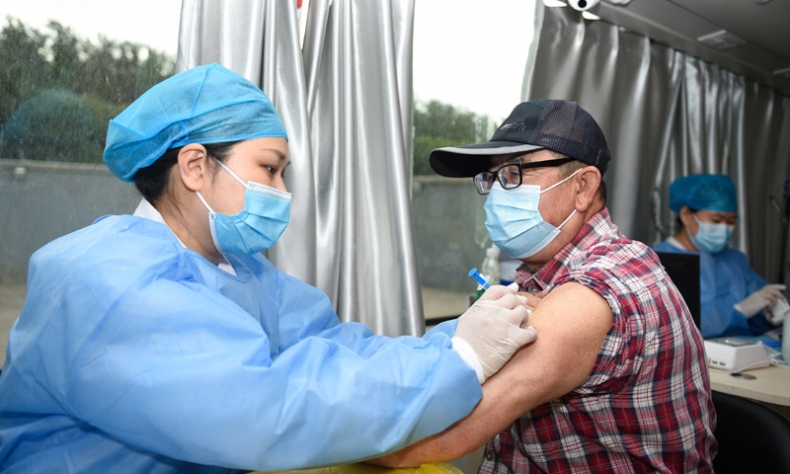1 Billion Shots Mark Shows China’s Efforts to Achieve Herd Immunity

There is no guaranteed victory against COVID-19 in the short term. Countries have to keep acting and planning ahead, constantly adapting and evolving their strategies.
China has reached an immense landmark of administering more than 1 billion COVID-19 vaccine shots, becoming the first country in the world to do so. At the current rate, health authorities have been administering a rate of up to 15-20 million doses a day, and typically 100 million in the span of a week.
However, considering China’s large population, it still has a long way to go. A billion shots in fact represent not the summit of the mountain, but merely a landmark on the way up the steep road likely to deliver around 2.8 billion shots to vaccinate everyone in the country.
This is an immense achievement, but to stop, celebrate and to become complacent is the wrong attitude given the inherent risk still posed by COVID-19.
For over a year, China has been able to successfully control the virus, contain new outbreaks and sustain life as usual. This has been done by strict targeted local lockdowns and comprehensive “leave no stone unturned” mass testing.
However, this cannot go on forever. There is always the threat of new outbreaks emerging and the challenge of dangerous new variants. There are some places in the world who having also contained the virus successfully, like Vietnam, suddenly found themselves struggling with new outbreaks. In this case, what is the exit strategy?
The only way to permanently end this scourge is to shift to herd immunity through the means of vaccination as fast as possible in a race against the evolving variants.
At present, the Delta variant has been spreading in Guangdong; while it is still a small number compared to other countries, nonetheless no risks can be taken. Therefore, China has orientated its strategy towards vaccinating as many people as possible and as fast as possible, and it has been made possible through a compliant public, an ironclad industrial and distribution capacity, as well as a stellar form of organization to do so.
This has allowed the country to issue doses matching the total population of Beijing in a single day.
One billion doses certainly mean things are on track. The Chinese government set a goal to fully vaccinate 40% of the country’s population by the end of this month. Within the next week, this almost certainly will have been reached; however, it also means, in retrospect, that the vast majority of the work still lies ahead and there is no room to slow down or relax.
Yet, on the current trajectory it may mean that China will reach what it is described as “herd immunity,” whereby at least 60% of the population have been fully vaccinated, within the next few months.
Even given this, however, the fight will not end. Scientists have likened overcoming COVID-19 to a “Swiss cheese model” – that is while you may place many layers successively in attempting to block the advance of the virus, there are always holes present, like a “Swiss cheese” whereby it may always find its way through again.
This means that actions to prevent it have to keep going. Currently, we are seeing the consequences of complacency in the United Kingdom, whereby even though a considerable proportion of the population has been fully vaccinated, the Delta variant has been allowed to spread unabated and raised new cases back up to 10,000 per day.
In this case, while China is vaccinating as fast as possible, it is also developing more enhanced vaccines. In addition, vaccinations will likely be continued as boosters in the future.
In a nutshell, there is no guaranteed victory against COVID-19 in the short term. Countries have to keep acting and planning ahead, constantly adapting and evolving their strategies.
It is not good enough to say “we have distributed 1 billion doses; we can relax now.” Instead, China shows the world how it is done. This is not a quick victory, it is a long-term war and the hope for a normal world has to be won hard, not merely anticipated.
 Facebook
Facebook
 Twitter
Twitter
 Linkedin
Linkedin
 Google +
Google +







